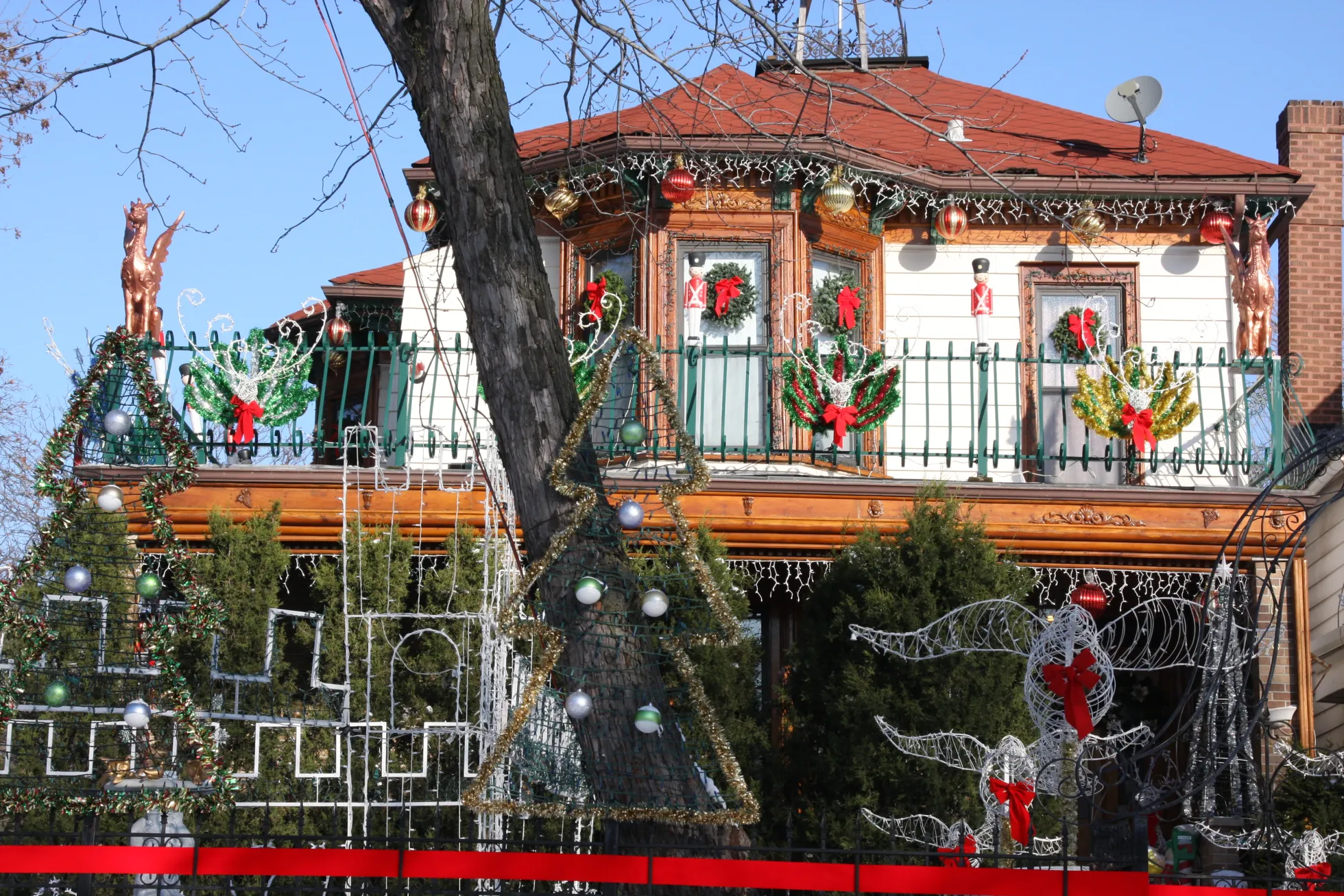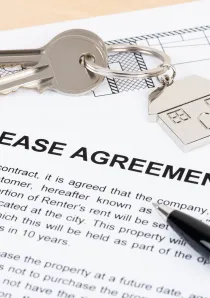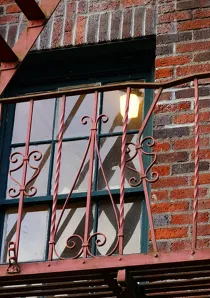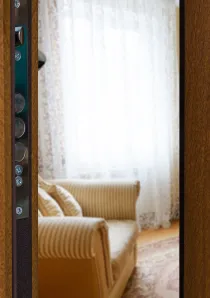Did you know that improperly installed holiday lights cause over 150 fires annually in the U.S.?
The holiday season in Chicago brings festive cheer, but for landlords, it also brings unique challenges. Managing holiday decorations isn’t just about aesthetics—it’s about balancing safety, tenant relationships, and legal compliance. With Chicago transforming into a winter wonderland, landlords must navigate municipal regulations and tenant dynamics to keep properties festive and safe. Here’s how to celebrate the season without risking fines, tenant disputes, or property damage.
Laws and Compliance for Holiday Decorations
Decorating rental properties requires adherence to Chicago’s municipal codes and safety regulations to avoid fines, liability, or tenant disputes. Here’s what landlords need to know:
Electrical Safety Standards
-
UL-Listed Products: Use only decorations approved by Underwriters Laboratories (UL). Look for the UL symbol on product packaging, as required by Chicago Electrical Code (14E).
-
GFCI Outlets: Outdoor lights must be plugged into ground fault circuit interrupter (GFCI) outlets, per the Chicago Building Code (14B-11-303.9).
-
Overloading Circuits: Avoid connecting more than three strings of lights unless manufacturer instructions explicitly allow. Overloaded circuits can cause outages or fires, violating fire safety laws.
-
Inspection: Before installation, inspect all lights for frayed wires, broken bulbs, or exposed wiring, as required under the city’s general safety requirements (Municipal Code Chapter 13-196).
Placement Restrictions
-
Sidewalks and Public Rights-of-Way: Outdoor decorations must not obstruct public sidewalks, alleys, or streets, per Chicago Municipal Code Chapter 10-28. This includes fences and light displays that encroach on pedestrian paths.
-
Entrances and Exits: Decorations must not block emergency fire exits or building entrances, as outlined in the Chicago Fire Code (14F-604).
-
Visibility Hazards: Traffic safety laws (Municipal Code Section 9-40) prohibit decorations that block visibility for drivers or pedestrians near intersections.
Height and Structural Limits
-
Large Displays: Decorations over 12 feet tall, such as inflatables or elaborate light installations, may require a permit from the Department of Buildings. Visit the City of Chicago’s Building Permits Portal for more details.
-
Structural Integrity: Ensure all installations are securely fastened to avoid potential hazards during winter storms, as required by building maintenance codes.
Noise and Light Disturbances
-
Noise Ordinances: Sound-producing decorations, like music-synced light displays, must comply with Chicago’s noise ordinance (Municipal Code Section 8-32-070), which prohibits loud sounds between 10 PM and 8 AM.
-
Excessive Lighting: Overly bright or flashing lights that disturb tenants or neighboring properties may violate Chicago nuisance laws (Municipal Code Chapter 7-28).
Landlord Responsibilities for Common Areas and Private Spaces
Landlords must navigate tenant rights and community standards when decorating shared spaces or building exteriors:
-
Decorations in Common Areas: Shared spaces like lobbies or hallways are under landlord control, allowing decorations at their discretion.
-
Inclusivity Considerations: Exclusively religious displays (e.g., a nativity scene) may alienate tenants and could be seen as discriminatory under Chicago’s Fair Housing Ordinance.
-
Best Practice: Use neutral decorations like wreaths, lights, snowflakes, or evergreen garlands to avoid potential disputes.
-
Decorations on the Building Exterior: Landlords can install decorations on building facades, such as string lights or wreaths, to enhance the property’s festive appeal. However, if tenants complain about excessively bright or flashing lights disrupting their comfort, landlords should address these concerns under nuisance laws by dimming or repositioning the decorations. Additionally, while religious displays may be legally permissible, they could lead to tenant dissatisfaction or complaints, making it essential to consider inclusivity and tenant preferences when planning decorations.
Hypothetical Scenarios and Solutions
Holiday decorations often fall into a gray area where tenant preferences, safety regulations, and local laws overlap, creating potential challenges for landlords. Below are common scenarios landlords may encounter during the holiday season, along with practical solutions to ensure compliance, maintain tenant satisfaction, and avoid potential disputes.
Scenario 1: A Tenant Uses Religious Displays in a Shared Lobby
-
Issue: A tenant places a nativity scene in the lobby, prompting complaints from other tenants who feel excluded.
-
Legal or Not? This falls into a gray area. Exclusively religious displays in common areas could be seen as discriminatory under Chicago’s Fair Housing Ordinance, which prohibits unequal treatment based on religion.
-
Solution: Develop a neutral decorating policy, communicated in advance, emphasizing inclusivity. Alternatively, allow tenants to decorate with symbols from all traditions equally, such as menorahs, kinaras, or festive non-religious decor like snowflakes. For this case, kindly explain the policy to the tenant and offer other spaces (e.g., inside their unit) for religious decorations.
Scenario 2: Outdoor Light Displays Spill Over into Public Spaces
-
Issue: A tenant strings lights over a shared fence, but the lights obstruct a public sidewalk, violating Chicago Municipal Code Chapter 10-28.
-
Legal or Not? Illegal. Any obstruction of public rights-of-way is prohibited and could result in fines or liability for the property owner.
-
Solution: Inform the tenant about the code violation and provide specific instructions to remove or reposition the lights. To avoid recurrence, set a clear policy for outdoor decorations in the lease or building rules.
Scenario 3: Tenant Complains About Outdoor Lights Affecting Their Sleep
-
Issue: A landlord installs festive string lights on the building’s exterior, but a tenant complains the lights shine directly into their bedroom, disrupting their sleep.
-
Legal or Not? While not explicitly illegal, excessively bright or intrusive lights could be considered a nuisance under Chicago Municipal Code Chapter 7-28, which addresses issues that interfere with tenant comfort.
-
Solution: Address the tenant’s concern promptly and respectfully. Options include dimming the lights, adding timers to turn them off during late hours, or repositioning them to reduce the impact. To avoid similar issues, landlords should consider the placement of decorations to ensure they enhance the property’s appeal without causing tenant discomfort.
Best Practices for Landlords
Holiday decorations add warmth and joy to rental properties, but thoughtful management is crucial to ensure safety, compliance, and inclusivity. Here’s how landlords can navigate this season smoothly:
-
Set Clear Rules: Include guidelines about holiday decorations in lease agreements. Specify what is allowed in both private and common spaces.
-
Inspect Regularly: Conduct periodic checks to ensure tenant decorations meet fire and safety codes, reducing risks for everyone.
-
Provide Alternatives: Offer safe, landlord-approved decor options for shared spaces, such as professionally installed lights or neutral decorations like wreaths and garlands.
-
Encourage Inclusivity: Foster a welcoming environment by allowing tenants to propose community decorating ideas, while keeping the final decision with the landlord. nclude guidelines about holiday decorations in lease agreements, specifying what is allowed in private and common spaces.
By following Chicago’s laws and implementing clear, fair guidelines, landlords can create festive spaces that are safe, compliant, and respectful of all tenants. Together, we can make Chicago’s rental properties as warm and inviting as the holiday season itself!
Disclaimer: The general information that Domu provides about Chicago landlord tenant law is not intended as legal advice. Domu endeavors to provide accurate information, but the law is subject to change, and Domu is not a law firm or provider of legal services. Questions about your particular leasing situation should be directed to a lawyer.




